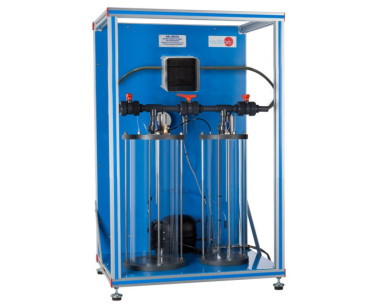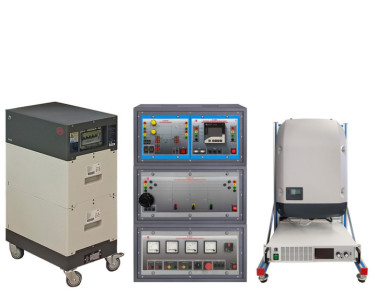- Startseite
- Produkte
- 1.- PHYSIK
- AKADEMISCHE PROGRAMME
- HÖHERE TECHNISCHE AUSBILDUNG
- LEBENSMITTELTECHNIK
- TOPOGRAPHIC ENGINEERING
- GEOLOGIE
- FOREST ENGINEERING
- UMWELTTECHNIK
- ÖKOLOGISCHES ENGINEERING
- TEXTILE ENGINEERING
- ENGINEERING FÜR DIE LANDWIRTSCHAFT
- MASCHINENBAU
- CHEMISCHE
- CHEMIEINGENIEURWESEN
- VERFAHRENSTECHNIK
- GEOLOGISCHE, BERGBAU- UND ÖLTECHNIK
- PETROLEUM-AUSBILDUNGSZENTRUM
- MEERESTECHNIK
- LANDWIRTSCHAFTLICHE TECHNIK
- ELEKTROTECHNIK
- DIE ARCHITEKTUR
- INFORMATIK UND INGENIEURWESEN
- NUKLEARTECHNIK
- AUTOMATISIERUNGATECHNIK
- ENERGIETECHNIK
- ZENTRUM FÜR ENERGIETRAINING
- ELEKTROTECHNIK
- SYSTEMS ENGINEERING
- LUFTFAHRTTECHNIK
- MARINE WISSENSCHAFTEN
- PHYSIK
- WIRTSCHAFTSINGENIEURWESEN
- INTERNATIONALES ZENTRUM FÜR TECHNISCHE AUSBILDUNG, ENTWICKLUNG UND FORSCHUNG
- WERKSTOFFTECHNIK
- METALLURGISCHE TECHNIK
- BAUINGENIEURWESEN
- TELEKOMMUNIKATIONS-INGENIEURWESEN
- THERMOTECHNIK
- TECHNISCHE SCHULEN
- ELEKTRONIK
- KOMMUNIKATIONSTECHNIK
- ELEKTRIK
- INFORMATIK UND INGENIEURWESEN
- AUTOMOBILTECHNIK
- BAUINGENIEURWESEN
- MECHANIK UND HERSTELLUNG
- MECHANISCH UND METALL
- STRÖMUNGSMECHANIK
- KÜHLUNG UND KLIMAANLAGE
- INDUSTRIELLE CHEMIE
- CHEMISCHE
- LEBENSMITTELTECHNIK
- LANDWIRTSCHAFT
- AGROINDUSTRIE
- INSTANDHALTUNG
- MARITIME UND FISCHEREI
- LUFTFAHRZEUGINSTANDHALTUNG
- INSTRUMENTIERUNG UND REGELUNG
- UMWELT
- TECHNOLOGIE
- BAUTECHNOLOGIE
- ELEKTROMECHANISCHE TECHNOLOGIE
- STRUKTURDESIGN-TECHNOLOGIE
- INDUSTRIEPRODUKTIONSTECHNOLOGIE
- INFORMATIONSTECHNOLOGIE
- QUALITÄTSKONTROLLE
- ENERGIESYSTEMTECHNOLOGIE
- BERGBAU- UND PETROLEUMTECHNOLOGIE
- TECHNIK FÜR NATURGAS
- ERNEUERBARE ENERGIEN
- TELEKOMMUNIKATIONSTECHNOLOGIE
- MECHANISCHE TECHNOLOGIE
- WINDENERGIETECHNOLOGIE
- KERNTECHNOLOGIE
- PROZESSKONTROLLTECHNOLOGIE
- ALLGEMEINE DIENSTLEISTUNGSTECHNOLOGIE
- LABORTECHNOLOGIE
- AUTOMATION UND MECHATRONIK
- TRANSPORT UND LOGISTIK
- HÖHERE TECHNISCHE AUSBILDUNG
- 2.- ELEKTRONIK
- 3.- KOMMUNIKATIONSTECHNIK
- 4.- ELEKTRIK
- 5.- ENERGIETECHNIK
- 5.1.- SMART GRIDS UND POWER SYSTEMS
- 5.2.- MIKROGRIDE
- 5.3.- ERNEUERBARE ENERGIEN
- 5.3.1.- PHOTOVOLTAISCHE SOLARENERGIE
- 5.3.2.- SOLARTHERMISCHE ENERGIE
- 5.3.3.- WINDENERGIE
- 5.3.4.- MEERESENERGIE
- 5.3.5.- GEOTHERMISCHE ENERGIE
- 5.3.6.- HYDRAULISCHE ENERGIE
- 5.3.7.- BIOKRAFTSTOFFE
- 5.3.8.- ENERGIESPEICHERSYSTEME
- 5.3.9.- WASSERSTOFFKRAFTSTOFFZELLEN
- 5.3.10.- DAMPFTURBINEN UND ORGANIC RANKINE CYCLES
- 5.3.11.- ANDERE NICHTKONVENTIONELLE SYSTEME
- 5.4.- KONVENTIONELLE ENERGIEN
- 5.5.- ENERGIESPEICHER
- 5.6.- HOCHSPANNUNGS- UND ELEKTRISCHE SCHUTZSYSTEME
- 5.7.- INSTALLATIONEN UND WARTUNG
- 6.- MECHATRONIK UND AUTOMATISIERUNG
- 7.- MECHANIK
- 8.- STRÖMUNGSMECHANIK
- 9.- THERMODYNAMIK & THERMOTECHNIK
- 9.1.- GRUNDLAGEN UND GRUNDKONZEPTE DER THERMODYNAMIK
- 9.2.- HEIZUNG, BELÜFTUNG, KLIMAANLAGE UND HEISSES WASSER
- 9.3.- WÄRMEPUMPEN
- 9.4.- KÜHLUNG
- 9.5.- THERMISCHES HYDRAULISCHES LEITUNGSSYSTEM
- 9.6.- WÄRMEÜBERTRAGUNG
- 9.7.- WÄRMETAUSCHER
- 9.8.- THERMISCHE MASCHINEN
- 9.9.- VERBRENNUNGSMOTOREN
- 9.10.- INSTALLATIONEN UND WARTUNG
- 10.- PROZESSSTEUERUNG
- 11.- CHEMIEINGENIEURWESEN
- 11.1.- EINHEITSBETRIEB
- 11.1.1.- FLUIDIZATION
- 11.1.2.- EVAPORATION
- 11.1.3.- BOILING
- 11.1.4.- DISTILLATION AND CRACKING
- 11.1.5.- EXTRACTION
- 11.1.6.- DIFFUSION
- 11.1.7.- DRYING AND COOLING
- 11.1.8.- ABSORPTION AND ADSORPTION
- 11.1.9.- ION EXCHANGE AND CORROSION
- 11.1.10.- CRYSTALLIZATION AND PYROLYSIS
- 11.1.11.- FILTRATION, SEDIMENTATION AND MIXING
- 11.1.12.- SOLIDS TREATMENT
- 11.2.- CHEMISCHE REAKTOREN
- 11.1.- EINHEITSBETRIEB
- 12.- NAHRUNGSMITTEL- UND WASSERTECHNOLOGIE
- 13.- UMWELTTECHNIK
- 14.- BIOMEDIZINTECHNIK
- 14.1.- BIOMECHANIK
- 14.1.1.- MECHANICS FUNDAMENTALS KITS
- 14.1.2.- EINFACHE MASCHINEN
- 14.1.3.- STATIK UND DYNAMIK
- 14.1.4.- VIBRATIONEN UND OSZILLATIONEN
- 14.1.5.- TRIBOLOGIE (REIBUNG, TRAGUNG, SCHMIERUNG)
- 14.1.6.- STRUKTURMECHANIK
- 14.1.7.- FOTOELASTIZITÄT UND STRAIN-MESSUNG
- 14.1.8.- MECHANISCHE TESTS
- 14.1.9.- THERMISCHE UND AKUSTISCHE PRÜFUNGEN
- 14.2.- BIOMEDIZINISCHE ELEKTRONIK
- 14.3.- BIOMEDIZINISCHE AUSRÜSTUNG
- 14.1.- BIOMECHANIK
- LABORZUBEHÖR
- MAßGESCHNEIDERTE PILOTANLAGEN
- MODULEN
- ERWEITERUNGEN
- LABORATORIEN
- Geschäftslinien
- Technologie
- Herunterladen
- Über uns
- Nachrichten
- Kontaktiere uns
Recycling and energy storage systems
At the forefront of these issues is the need for innovative approaches that not only meet the soaring demand for raw materials but also mitigate the environmental impact of battery disposal. As EV batteries reach the end of their lifecycle, they can become a significant source of pollution if not managed correctly. Addressing these challenges requires a comprehensive and sustainable strategy focused on recycling and reusing valuable materials within a circular economy framework.

EDIBON’s commitment to circular economy in energy storage
At EDIBON, we recognize the importance of sustainable practices in energy storage and are committed to developing real-world solutions that address these global challenges. Our work focuses on integrating circular economy principles into the lifecycle of lithium-ion batteries. By emphasizing recycling and efficient resource utilization, we aim to significantly reduce waste and environmental impact while supporting the increasing demand for essential minerals.
Our circular economy approach in energy storage revolves around three key areas:
1. Battery recycling: At EDIBON, we employ cutting-edge recycling processes to recover valuable metals like lithium, cobalt, and nickel from used batteries. This not only reduces the need for raw material extraction but also prevents potentially hazardous waste from contaminating the environment. Through these recycling processes, we can recirculate precious materials back into the production cycle, helping to preserve natural resources and reduce reliance on mining.
2. Energy storage systems: Beyond recycling, energy storage systems play a critical role in sustainable energy management. As renewable energy sources like solar and wind become more prevalent, the need for efficient storage solutions grows. Our energy storage systems are designed to support renewable energy integration, helping balance supply and demand, reduce energy waste, and promote a more stable and resilient power grid.
3. Pilot Plants for real-world solutions: To bring our ideas to life, EDIBON has developed pilot plants that offer practical solutions to battery recycling and energy storage challenges. These pilot plants allow us to test and refine our technologies, ensuring that they meet both environmental and industrial standards. Our facilities demonstrate the feasibility and effectiveness of our recycling processes, providing a model that can be scaled and replicated globally.
The environmental impact of lithium-ion batteries and the path forward
The environmental impact of lithium-ion batteries goes beyond their disposal; it starts from the mining and refining of raw materials. Extracting lithium, for example, requires significant water resources, often in regions where water scarcity is already an issue. Additionally, the mining of cobalt and nickel can lead to environmental degradation and ethical concerns surrounding labor practices. By focusing on recycling and reusing these materials, we can reduce the ecological footprint of battery production and contribute to a more sustainable supply chain.
Our pilot plants at EDIBON are a testament to our commitment to this cause. They demonstrate how recycling and recovery processes can reduce the need for raw material extraction, lower greenhouse gas emissions, and prevent toxic waste from entering the environment. By converting waste into valuable resources, we help minimize the environmental impact associated with the end-of-life stage of batteries and create a circular loop within the battery production cycle.

Join us in building a greener future
As a company dedicated to innovation and sustainability, EDIBON is committed to leading the way in energy storage and battery recycling. We invite you to learn more about our efforts and witness our pilot plants in action. Together, we can create a future where energy storage solutions are not only effective but also environmentally responsible, contributing to a cleaner, greener, and more efficient world.
At EDIBON, we believe that every step toward a circular economy in energy storage is a step toward a sustainable future.
 Cookie-Präferenzen
Cookie-Präferenzen



